On March 20, 2025, we will stop accepting new Military Disability Made Easy subscriptions. For more information about how this change may impact your subscription, click here
Committee Urges VA to Change Sleep Apnea Ratings for Military Disability
- Published:
- Last Updated: October 18, 2023

Since 2009, there has been a 150% increase in VA disability claims for Sleep Apnea, a condition that causes the person to stop breathing for a time during sleep and, if left untreated, can cause major health problems such as heart disease. It has been proven to be most commonly caused by obesity.
In June of 2013, the VA Advisory Committee on Disability Compensation privately urged the VA to consider four proposals to deal with this excessive increase in claims, which is credited to an increased awareness of the condition.
The Committee made the following recommendations:
1.) Have the required sleep tests performed only by VA physicians to guarantee that they are done properly. This would mean that all veterans seeking a diagnosis of sleep apnea for disability compensation would have to go to a VA doctor for the required sleep studies.
It is already standard practice for the VA to only consider medical evidence from VA or military-approved physicians, so this wouldn’t really change much. If, however, the new amendments to the Quicker Veterans Benefits Delivery Act, which we discussed a few weeks ago, were passed by Congress, this rule would be in direct violation of that act.
2.) Review the methods and criteria used to verify service connection for sleep apnea. Many officials have been arguing about whether or not sleep apnea can truly be said to be caused by military service.
For a condition to qualify for military disability, it must be clearly proven to have been caused by military service or have occurred while in the military.
Sleep apnea has been medically proven to be tied to obesity, and so some argue that, with the military’s strict fitness regulations in place, it is highly unlikely that the obesity that caused it was caused by military service.
The idea that sleep apnea is caused by PTSD has been broached by many, but there is no firm evidence at this time that this is the case.
3.) Have an in-depth study done by the Institute of Medicine on the degree of actual disability caused by sleep apnea, especially for veterans who are on CPAP (Continuous Positive Airway Pressure) machines.
Which goes right along with:
4.) Conduct a review of the standards used to determine the average earning loss for a disabled veteran with sleep apnea.
The basic idea of recommendations 3 and 4 is that they want to determine just what level of disability a person with sleep apnea actually has, especially if they use a CPAP machine.
The whole idea of military disability is to compensate veterans for conditions that were caused by military service and that limit their ability to work and earn an income.
The big question being asked is, “Does sleep apnea really cause a veteran to earn less money?” Major symptoms of sleep apnea include severe drowsiness, and if left untreated, sleep apnea can cause serious heart problems. These all appear to be definite conditions that could indeed affect a person’s ability to work.
It is standard practice, however, to not give compensation for a condition that is properly fixed with treatment. For example, if a veteran broke his leg but was able to fully heal with no lasting symptoms, then he would not get any disability compensation since he does not have a disability that limits his ability to work.
VA officials are arguing that the laws currently in place in the VASRD for sleep apnea are unfair since they give veterans a staggering 50% rating for sleep apnea that requires the use of a CPAP.
The argument continues: The proper use of the CPAP should completely resolve the symptoms caused by sleep apnea in most cases. If there are no symptoms, then there is no disability that limits the ability to work. Why then should a veteran that uses a CPAP for his sleep apnea receive $822 every month while a veteran with an amputated foot (a 40% disability) only receives $577 each month?
The goal of these recommendations is to adjust the laws to properly reflect just how much sleep apnea actually limits a person’s ability to work.
With just the current evidence, it does seem fairly likely that the VA will choose to decrease the ratings for sleep apnea. Following the recommendations above, however, may lead to new data and evidence that is not now being considered.
Even if they do end up lowering the ratings, however, anyone who already has a rating for sleep apnea will not have that rating decreased. The changes will only apply to new cases that are decided after the rule goes into effect.
What do you think of adjusting the ratings for Sleep Apnea? We want to hear from you!
Recent Posts
TDRL vs. PDRL—Which is better for disability benefits?
February 13, 2025
Leukemias and Multiple Myelomas NOW on the Presumptive List
January 9, 2025
Two MORE Conditions added to the Burn Pit Presumptive List
January 3, 2025
The 2025 VA Disability Rates are here!
December 2, 2024
About Us

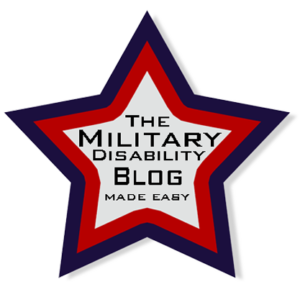
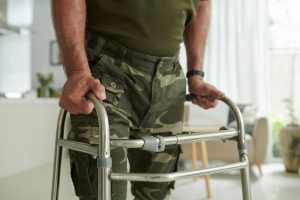
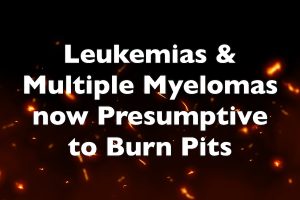
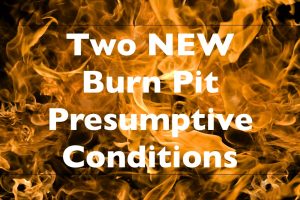

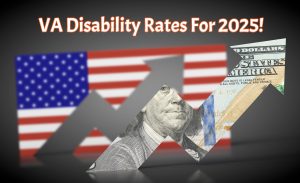
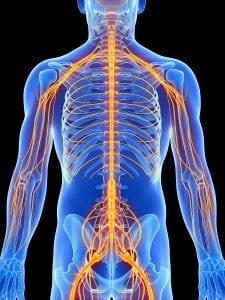


9 Comments
While I agree with the statement
"Why then should a veteran that uses a CPAP for his sleep apnea receive $822 every month while a veteran with an amputated foot (a 40% disability) only receives $577 each month? "
The amputee should get more! Keep in mind the Sleep apnea guy is forever tied to that CPAP machine, symptoms instantly come back when you dont use it!
Exceptional point. I can't imagine having to sleep every night hooked up to a machine. I guess I might get used to it, but it doesn't sound fun at all.
Without treatment and the incovenince of being hooked to a machince to be able to sleep is indeed no fun
If you have both sleep apnea and insomnia, the machine doesn’t guarantee you to go to sleep, it only guarantees you stay asleep once it happens. In most cases, people with a CPAP find it hard to use the cpap so really the machine is like medicine it doesn’t cure it, but it helps alleviate some of the symptoms, so it is still a disability. Maybe the people that decide these things should not compare the illnesses. Anyone that has an amputation should get 100% because their body is never ever going to be the same with or without a prosthesis. A person with sleep apnea that is untreated can suffer higher bp or death. BTW high bp is not always cured by using CPAP if you have complications using CPAP. So to compare the two is unfair it is like comparing Apples to Oranges. Just my thoughts. I am chronic about this issue because I have insomnia and sleep apnea and both can drive you up and over a wall. Days without sleep and when you do sleep, the air being pushed up your nose can make it very hard to work. I have been denied twice for a sleep apnea claim, once as an initial claim next time as a secondary claim. It did impair my work to the point of being written up, and then retiring at 59 1/2. Just needed to vent lol
Thanks for sharing your thoughts and experiences, Vonnie. Too often, the VA makes decisions entirely on data, not real life experiences, so we believe it’s very important to share more real life stories from veterans like you. Clearly sleep apnea had a massive impact on your daily life and ability to work despite the use of a CPAP machine.
The statement “the use of a CPAP completely resolves the symptoms caused by sleep apnea” may be true for some but not all, you can’t lump everyone into the same category.
You’re correct. That is why the VA is proposing to change the ratings for sleep apnea to remove mention of the CPAP and instead focus on the symptoms and whether or not they are resolved by treatment. https://militarydisabilitymadeeasy.com/new-proposed-changes-to-the-ratings-of-the-respiratory-system.html
This comparison isn’t fair. A CPAP machine is uncomfortable in the least and closterphobicat worse. Some of us can’t keep one on 2-30 minutes much less any effective therapeutic time.
Great point, Glenwood. The VA’s new proposed ratings for sleep apnea no longer use the CPAP machine as a rating criteria. This change comes because of people like yourself whose condition cannot be properly treated by a CPAP machine. Instead, the ratings will focus on the presence of symptoms despite treatment. https://militarydisabilitymadeeasy.com/new-proposed-changes-to-the-ratings-of-the-respiratory-system.html